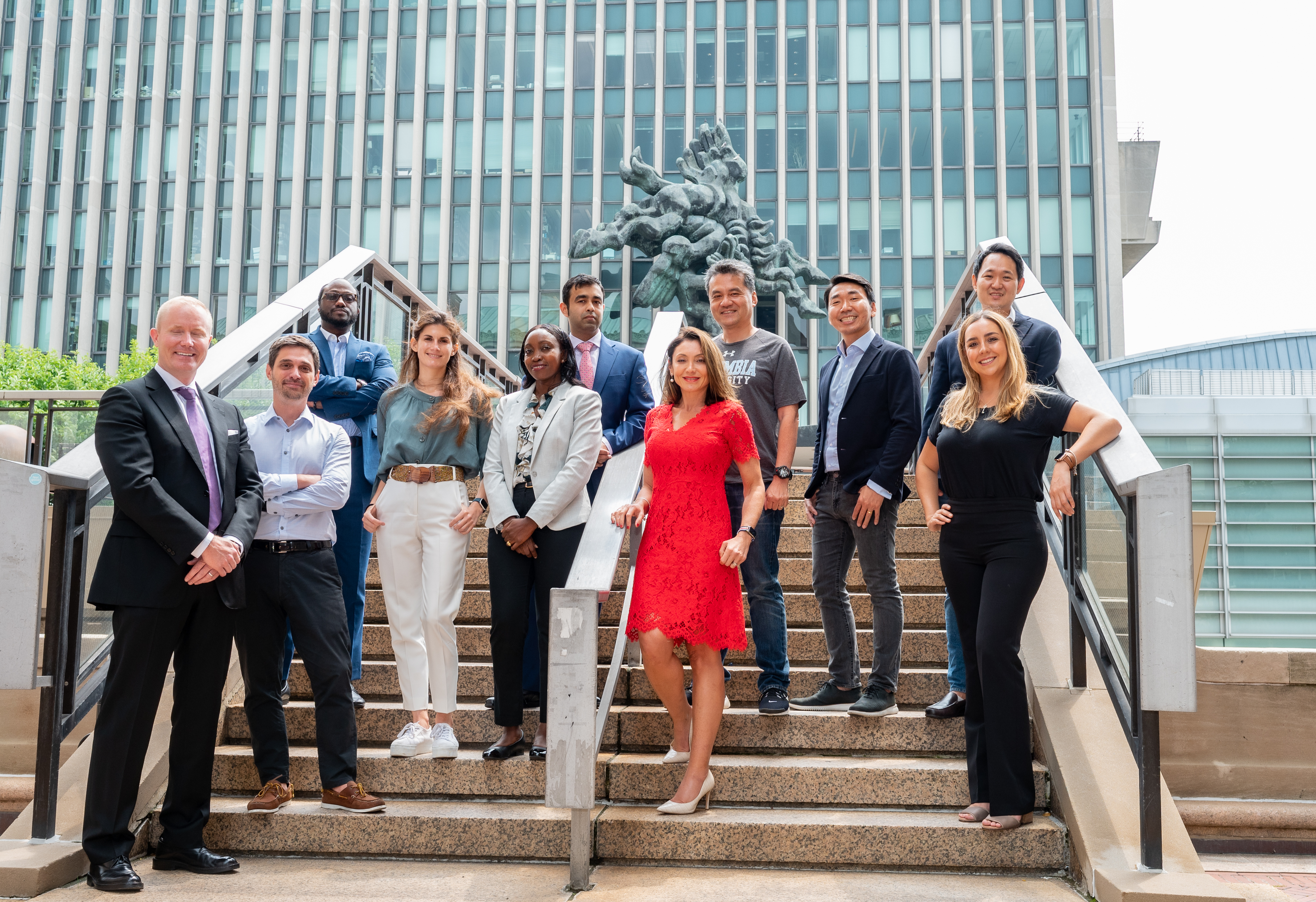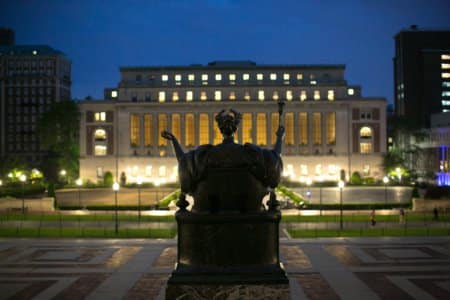“Columbia” is a word that has changed Javier Montejo’s life forever. After graduating from Columbia Law School’s Executive LL.M. (E.LL.M.) in Global Business Law last year, he returned to Costa Rica with three new clients and a growing portfolio. “The simple fact that you are a Columbia Law graduate makes a statement on your CV,” he says. “Most of my clients are from the U.S., Canada, or Europe, so having the Columbia degree has opened doors for me.”
Perhaps the E.LL.M.’s greatest impact on Montejo is something less quantifiable: his future-readiness. A rapidly changing world calls for lifelong learners and problem solvers—the kind who possess creativity, analytical thinking, and technological literacy, the top three skills growing in importance according to the World Economic Forum’s The Future of Jobs Report 2023.
The list of skills evolves according to the trends and needs of industries. Wherever these ebbs and flows lead Montejo on his legal journey, he is confident he will stay ahead of the curve. “The program levelled me up in the sense that the experience opened my mind to new horizons,” Montejo says.
Learn from the world’s top corporate law faculty and brightest lawyers
Refreshing old skills and learning new and emerging areas of practice is crucial for all professionals, especially those in the legal field. Going back to school is typically a great way to do this. But for busy legal professionals, the time commitment required to earn an LL.M. degree—an entire year or longer—can be an insurmountable hurdle. The E.LL.M. circumvents this through its accelerated format. In just six months, and without requiring an extended break from work, students can build a strong foundation in U.S. business law, which is a key element of cross-border transactions, as well as study specialized aspects of business law.

Classmate Boma Briggs ‘23. Source: Columbia University – School of Law
Online classes are held on Zoom several times a week, in the morning Eastern time. To attend, Montejo woke up a few hours earlier than he normally did before heading to the office for meetings and calls. He found the hours “ideal.” Classmate Boma Briggs ‘23 agrees. She calls the 12-week, on-campus summer residency combined with the online classes “a perfect marriage. … It allowed me to minimize time away from work and my kids but still get the connection with the school, the professors, and my coursemates that is required in an executive program,” she says.
Briggs initially chose Columbia Law’s E.LL.M. as a way to enhance her opportunities within a defined career path. The E.LL.M. challenged that thinking for her. When she graduated last year, she left having had a transformative experience in which she “recognised and rediscovered varied career options” and expanded her possibilities.
The drivers for that experience were her professors, cohort, and visiting experts. Together with the other students (approximately 20 accomplished lawyers with sophisticated international practice experience), Briggs shared insights and built lasting professional relationships, especially in interactive courses, speaker sessions, and workshops.
“I truly gained a global network of professional colleagues and a few friends as a result of the program. With the class size being relatively small, you engage and build connections with your coursemates, who are all brilliant professionals carving niches for themselves in the practice of law in diverse industries and various locations—including on six different continents,” she says.
In addition to her accomplished peers, Briggs studied with Columbia Law’s renowned faculty—experts who have shaped policies for some of the world’s most prominent public and private institutions. They include professors David M. Schizer, Harvey R. Miller Professor of Law and Economics and Dean Emeritus, one of the nation’s leading tax scholars; and Christina D. Ponsa-Kraus, George Welwood Murray Professor of Legal History, who writes about the constitutional history of American territorial expansion and the extraterritorial application of the U.S. Constitution.
“I so enjoy teaching our Executive LL.M. students. They bring a wealth of experience and a global perspective to every issue we discuss. These are master classes with masterful students.”
—David M. Schizer, Harvey R. Miller Professor of Law and Economics and Dean Emeritus
Montejo describes the faculty as “amazing” and the administrative staff as “just incredible. … “Professors such as Anu Bradford and Kabir Duggal do make a huge difference in the expected experience, which in my case had a very high bar,” he says. “Their classes open your mind to the world and make you think that your reality is just a very small part of the world. Absorbing and later applying these topics help you as a professional and as a person.”
“The international student body makes Columbia a thrilling and energizing environment to teach. I love how the students bring their diverse experiences to the classroom and enrich the conversations with their unique and varied perspectives every day.”
—Anu Bradford, Henry L. Moses Professor of Law and International Organization

Javier Montejo. Source: Columbia University – School of Law
NYC: A great teacher of the world
The Law School is situated on Columbia’s Morningside Heights campus in New York City, a capital of culture, finance, business, media, and law. The summer residency lasts 12 weeks, comprising four electives and the required Global Business Law Colloquium. “The campus is just beautiful, and the Butler Library is like a set in a Harry Potter movie. Just lying on the grass while reading was one of my favourite activities,” says Montejo. “The resources offered by the university are endless.”
The program also mixes in events like trips to Broadway and Yankee Stadium. “New York City is the capital of the world,” says Montejo. “Going out to eat, visiting iconic locations, and going to Broadway shows is just the tip of the iceberg.”
While in New York, E.LL.M. students network and connect in person with their cohort—leaders in law firms, corporations, government agencies, and NGOs worldwide. But their journey doesn’t stop with the last day of classes—the mentorship, career guidance, and professional development opportunities they find while in the program can be counted on long after they have graduated.











